
Alphabetical Menu
Chronological Menu
|
Everything Everywhere All at Once 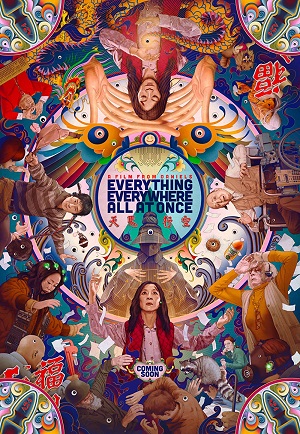 Evelyn (Michelle Yeoh) owns a laundromat with her husband, Waymond (Ke Huy Quan). They're scheduled for a meeting with a no-bullshit IRS agent, Deirdre (Jamie Lee Curtis), for an audit. They have until 6 PM that day to present Deirdre with the right documents and receipts or else the IRS will fine them and shut down their laundromat. Their daughter, Joy (Stephanie Hsu), announces that she has a girlfriend, Becky (Tallie Medel), but Evelyn has no clue how to explain it to Gong Gong (James Hong), Evelyn's father. Meanwhile, she learns that Waymond wants to divorce her. On the way to the IRS meeting, Waymond introduces her to a device that connects their family and Deirdre to parallel multiverses that could help them with their tax audit. The less you know about the plot beforehand, the better because Everything Everywhere All At Once goes in many surprising directions with some unpredictable twists along the way. Co-writers/directors Dan Kwan and Daniel Scheinert, known as "The Daniels," have created a wildly entertaining, audacious and funny trip down the rabbit hole. To compare it to other films that it has a lot in common with, i.e. The Matrix, Being John Malkovitch, Scott Pilgrim and Crouching Tiger, Hidden Dragon, wouldn't do it any justice. They mix up the genres of action, sci-fi, satire, comedy and drama which sounds like, on paper at least, that it would lead to an uneven, tonal mess, but it somehow works without unevenness. This is a prime example of a brilliant concept that's just as brilliantly executed. It's fundamentally a story about a dysfunctional family going through a struggle between the family members themselves and the family and the IRS. Yes, there are plenty of silly scenes, but they're amusing when they're not laugh-out-loud funny. You'll find some visual gags, including one that involves a blurred out image that leaves a lot to the imagination and will be discussed as much as the iconic hair gel scene in There's Something About Mary. There's also witty, tongue-in-cheek humor and some "easter eggs" which might require repeat viewings to catch all of it. Exposition is also among the film's strengths because the Daniels find just the right amount of exposition about the multiverses which might be confusing initially, but that's okay because Evelyn herself is just as confused as the audience during those scenes. The Daniels know when to take the film seriously and when not to, so there are actually some surprising moments of poignancy and even some life lessons about compassion, kindness and forgiveness which add intellectual and emotional depth. It's the rare action adventure film with a heart, mind and soul. Michelle Yeoh gives one of the best performances of her career in a role that showcases how talented she as an actress when it comes to pulling off drama, action and comedy. She's just as wonderful and mesmerizing as she is in Crouching Tiger, Hidden Dragon, another subverse, genre bending film that Everything Everywhere All At Once holds a candle to. Jamie Lee Curtis has a lot of fun in her role as the IRS agent. It's a pleasure to watch both her and Michelle Yeoh let loose, especially in one of the multiverses where their characters have hot dogs as fingers. The visual effects are impressive and the soundtrack is also quite well-chosen. The running time of 2 hour and 12 minutes does feel a bit overlong, though, which results in a little exhaustion around the 90-minute mark, but, fortunately, Everything Everywhere All At Once never runs out of steam or ideas for that matter. You'd be better off watching it with a large crowd while high or with a few drinks. It's destined to become a cult classic.
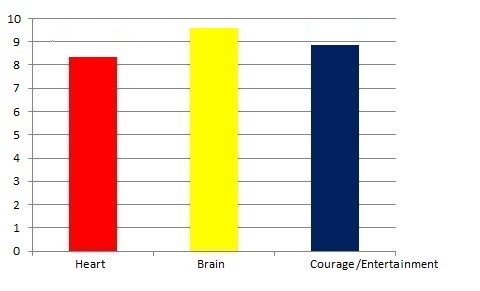 Infinite Storm 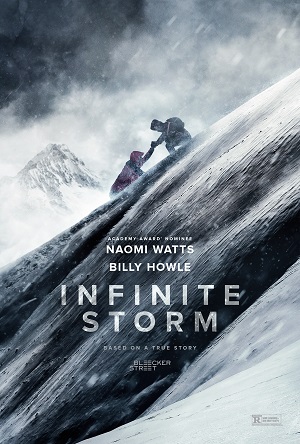 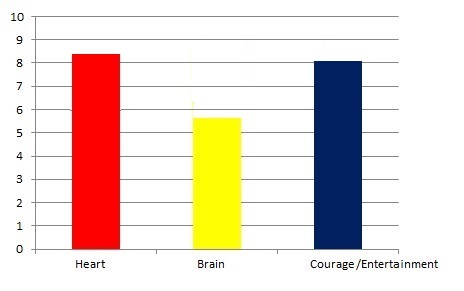 The Lost City  Loretta Sage (Sandra Bullock), the author of a popular adventure book series, goes on a book tour with Alan Caprison (Channing Tatum), the model on her book covers, and her editor, Beth Hatten (Da’Vine Joy Randolph). A smarmy billionaire, Abigail Fairfax (Daniel Radcliffe), kidnaps her because he thinks that she can lead him to hidden treasure located on an island where he found a lost ancient city. He flies her all the way to the tropical island while Alan and Jack Trainer (Brad Pitt), an ex-Navy Seal trainer, go on a mission to rescue her after locating her whereabouts via GPS. The Lost City has nothing new to add to the action/comedy jungle adventure genre nor does it try to. The screenplay by writers/directors Adam Nee and Aaron Nee along with Oren Uziel and Dana Fox weave a plot that doesn't take itself seriously, but, at the same times, doesn't go far enough in terms of campiness and humor. The humor plays it safe for the most part with some jabs at feminism, but nothing that's laugh-out-loud funny except for one scene at the end with the villain. He's a cookie-cutter villain who's just as boring as Loretta and Alan. Loretta and Alan's banter works at times, but for the most part their chemistry falls flat. Harrison Ford and Anne Heche are much funnier in Six Days, Seven Nights as were Humphrey Bogart and Kathryn Hepburn in The African Queen. Then, for course, there's Romancing the Stone with Michael Douglas and Kathleen Turner which The Lost City borrows heavily from with an obvious nod to its source when one of the book tours is called "Romancing the Page." Of course, there's a scene with leeches meant to generate humor, but it worked better in The African Queen. That scene here overstays its welcome, and the same can be said about much of the second act that has Loretta and Alan running through the jungle. The supporting characters are more interesting and funny than the main cast. Brad Pitt steals the few scenes that he's in, but the real surprise is how funny Da'Vine Joy Randolph and an off-the-wall pilot (Oscar Nuñez) are together. They have the best comedic timing in the movie and also the best chemistry, but their scenes are just as ephemeral as Brad Pitt's scenes. The scenery looks nice and some of the CGI is decent. The running time of 1 hour and 52 minutes does weigh down on it a bit; it could've been trimmed down to a breezier 90 minutes or so. Although it's better than the dull and less entertaining Uncharted, The Lost City is nonetheless nothing more than a harmless and mildly engaging, yet forgettable diversion. 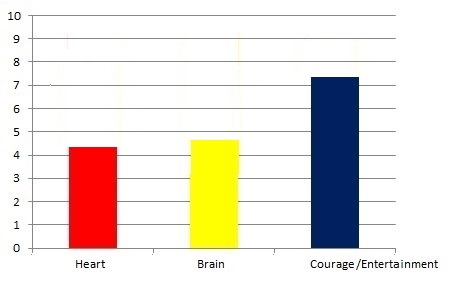 Mothering Sunday 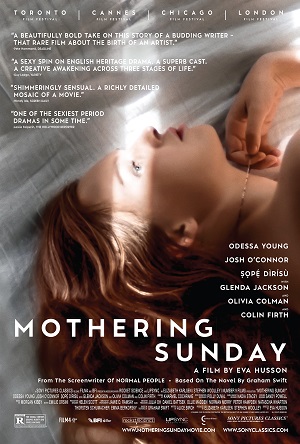 Jane Fairchild (Odessa Young), an aspiring author, works as a maid for Mr. Niven (Colin Firth) and Mrs. Niven (Olivia Colman) who are still in the process of grieving over the loss of their son who died in WWI. On Mothering Sunday, a.k.a. Mother's Day, Jane has the day off and flirts with Paul (Josh O'Connor), the son of Mr. and Mrs. Niven's neighbors. They strike up a forbidden romance even though Jane knows that he's about to marry Emma (Emma D’Arcy). Years later, Jane has a boyfriend, Donald (Sope Dirisu), but hasn't forgotten her passionate romance with Paul that started on Mothering Sunday. Based on the novel by Graham Swift, Mothering Sunday an engrossing romance, but not as engaging when it tries to be a sweeping epic. The screenplay by Alice Birch spans many decades in three different stages of Jane's life: her younger years when she met Paul, her later years when she has a new boyfriend and hasn't seen Paul in a while, and her elderly years (played by Glenda Jackson) after her success as an author. When the story jumps many years, it skips a lot of key events which screenwriter Alice Birch and Eva Husson leave to the audience's imagination in some cases, but in others it flashes back to them. For example, you don't get to learn how and where Jane met her new friend, Donald, until later on. The nonlinear structure feels a little distracting, though, and makes Mothering Sunday seem disjointed and even a bit convoluted when it's really not. Jane's passionate relationship with Paul is what grounds the film, although the forbiddenness of their relationship doesn't generate much suspense. Tragedy does eventualy strike, in a way which will not be spoiled here, but Birch and Husson keep the film's darker elements subdued for the most part. They choose to show the emotional impact of those events on Jane and Emma without cutting too deeply. What they also don't shy away from is the nudity during the sex scenes which makes Mothering Sunday as unflinching when it comes to sex as a French movie. Interestingly, there's very little comic relief or wit; this isn't Emma. nor is it anything at all like The Favourite, though. There's one very powerful, gripping scene that stands out with Jane and Mrs. Nivens finally having a heart to heart. There would have easily been a separate movie about the struggles of Mrs. Niven, a character who remained on the sidelines who's just as intriguing as Jane. They're both experiencing grief albeit on their own, but they both experience emotional pain while coping with it differently. Mr. Niven, too, has a lot going on with him on an emotional level that remains underexplored. Then there's the elderly version of Jane which isn't really focused on until the last few minutes which feel too rushed. The cinematography in Mothering Sunday is often exquisite with breathtaking shots that makes it both poetic and cinematic concurrently. Everything from the music score to the set design, costume design and lighting all come together to create a visual style which helps to enrich the film on an aesthetic level. The cast is very well-chosen and make the most out of their roles. Josh O'Connor and Odessa Young have palpable chemistry together. In order for a romantic drama to work, the audience has to buy the romance between lovers, so the talented, charismatic O'Connor and Young help tremendously to achieve that feat. Olivia Colman is underused in the film, but her few scenes are spellbinding just as expected. It's too bad that there weren't more scenes with Glenda Jackson as the elderly Jane because that would've allowed the third act to have packed more of an emotional wallop. Glenda Jackson has even less screen time than Judi Dench did in Shakespeare in Love. At a running time of 1 hour and 50 minutes, Mothering Sunday is a tender and engrossing love story with moving performances from its fine cast and poetic cinematography, but its clunky, unfocused and non-linear narrative ultimately diminishes its emotional impact. 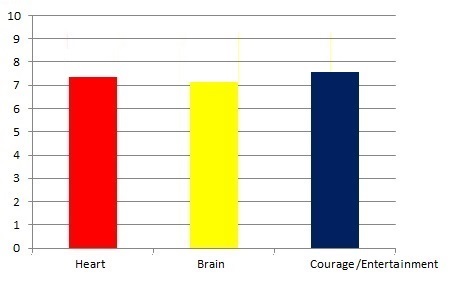 Nitram 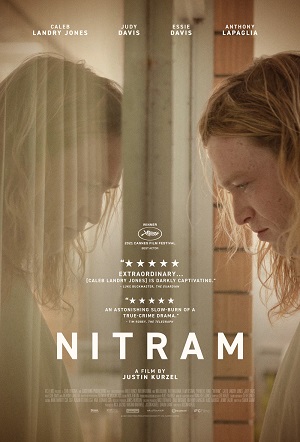 Nitram (Caleb Landry Jones), a young man, lives in Port Arthur, Tanzania, with his mother (Judy Davis) and father (Anthony LaPaglia), who hopes to buy a new house. Despite being injured from playing with fireworks when he was 12, he still plays with fireworks and suffers from depression which he takes medication for. He befriends Helen (Essie Davis), a reclusive heiress, and buys a car even though he has no license. Tragedies strike and, soon enough, he purchases a gun. Based on the true story of Martin Bryant , a mass shooter who killed 35 people in the 1996 Port Aurthur massacre, Nitram is a gripping psychological thriller in the vein of We Need to Talk About Kevin. Screenwriter Shaun Grant depicts the events leading up to the massacre without actually showing it, much like in the recent Ted K. The audience is introduced to Nitram in a way that makes it obvious that he's deeply troubled, but it doesn't judge him nor does it explain him. Instead, Grant humanizes him while letting the audience come to their own conclusions of whether Nitram did what he did mostly because of his nature or because of his nurture. He has a lot of anger, frustration and sadness lurking inside of him which he doesn't quite know what to do nor does he have any good role models in his life to help guide him. He's essentially emotionally immature, but so his father who doesn't know what to do with his own emotions either, so he commits suicide. Director Justin Kurzel builds the tension gradually until the slightly more intense, but not very graphic third act. Much of the film's horror is found in the audience's imagination, a true powerful tool. Without voice-over narration, Nitram manages to create a window into the heart, mind and soul of its very disturbed protagonist. Caleb Landry Jones gives a raw, breakthrough performance as Nitram as he sinks his teeth with aplomb into his heart, mind and soul. Even through his body language, you can sense more or less what Nitram is thinking. There's a quiet, but powerful and unsettling scene where Nitram just sits and eats after committing a crime. He says nothing nor does he need to thanks to Landry's mesmerizing, chilling performance. The pace moves slowly, but not too slowly, and there's no use of shaky cam, so director Justin Kurzel clearly trusts the tension that's already built into the narrative. By focusing more on emotional and psychological grit than physical grit/violence, Nitram makes for a spellbinding, engrossing and provocative experience. It's one of the best psychological thrillers since We Need to Talk About Kevin.
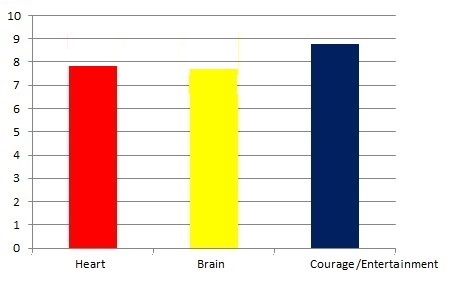 |